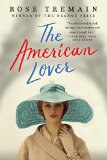Summary | Excerpt | Reading Guide | Reviews | Beyond the Book | Readalikes | Genres & Themes | Author Bio

When Beth came back from America, she got married. Her husband was an English aristocrat called Christopher. He was a semi-invalid with encroaching emphysema, but he was kind. He told her she needed someone to care for her, and she felt this to be true: she was being suffocated by the surfeits of her existence. Christopher said that, on his part, Beth would 'decorate' his life in ways he had often thought would be appropriate to it, but he reassured her that he preferred sex with men and would let her sleep alone. His house in Northamptonshire had a beautiful apple orchard, where he built her a wooden cabin. He suggested she might write her books in this cabin, and he furnished it with care.
She spent some time there, playing Bob Dylan songs, watching the apple blossom falling in the wind, but she knew she would never write another book. She had no life to put into it, only the half-life that she'd been leading, since writing The American Lover. And the years were beginning to pass. She was being forgotten. People knew that she was the author of what had come to be known as a 'great classic about transgressive first love' but times were changing, and they couldn't quite remember what all the fuss had been about.
Beth liked Christopher because he sheltered her. When her house in St-Tropez burned down, Christopher began on her behalf a long wrangle with a French insurance firm. But he couldn't win it. The house had been struck by lightning, so the insurers said, and nobody could be insured against 'acts of God'.
Christopher lamented all the money Beth had poured into this house, but she found that she didn't really care about it – either about the house or about the money. The person who got mad was Beatrice. She screamed at Beth that she was letting everything slip through her fingers. 'You will soon see,' she said, 'that the money will dry up, and then what are you going to do?'
She didn't know or care. With Christopher, she had suddenly entered upon a period of quiet. It was as if her heart had slowed. She liked to work in the greenhouses with Christopher's gardeners (one of whom, a handsome youth called Matty, was his most favoured lover), potting up seedlings, tending strawberries, nurturing herbs. Only now and again did some resistance to this quiet life rise up within her. Then she would get into the new red E-Type Jaguar that Christopher had given her and drive at terrible speed down the Northamptonshire lanes, screaming at the sky.
'Were you trying to die?' Rosalita asks her.
'Not trying,' Beth replies. 'Just laying a bet.'
'And you didn't think, maybe you hurt or kill someone else?'
'No. I didn't think.'
'This is not good,' says Rosalita. 'You were like the bull which wounded my brother. You had a small brain.'
One time, she just went on driving until she got to London. She called Christopher to say that she was safe and then stayed in her Kensington house, doing nothing but drink. Her wine cellar was emptying but there were still a few cases of champagne left, so she drank champagne.
She'd intended to drive back to Northamptonshire the following day, but she didn't. She was glad to find herself in a city. She found that if she went to bed drunk, Thaddeus would often visit her in her dreams. He would come into her room very quietly and say, 'Hey, kid.' He would remove the hat that he sometimes wore and sit on the bed and stroke her hand. This was as far as the dreams ever got, and Beth began to work out that this affectionate, silent figure was waiting for something. He would never say what. He sat very still. Beth could smell his aftershave and hear his quiet breathing.
Then, one morning, she believed she understood. Thaddeus was asking for her forgiveness.
Excerpted from The American Lover by Rose Tremain. Copyright © 2015 by Rose Tremain. Excerpted by permission of W.W. Norton & Company. All rights reserved. No part of this excerpt may be reproduced or reprinted without permission in writing from the publisher.
Your guide toexceptional books
BookBrowse seeks out and recommends the best in contemporary fiction and nonfiction—books that not only engage and entertain but also deepen our understanding of ourselves and the world around us.